Tortuguero National Park is an ecological treasure trove buried in northeastern Costa Rica. Accessible by plane, bus, and boast from San Jose, the park is part of the larger Tortuguero Conservation Area, which is in turn part of Humedal Caribe Noreste, a wetland of international significance.
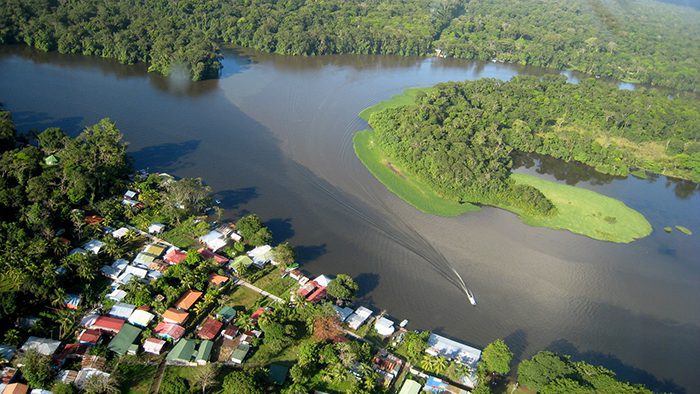
Check out our article about Top 10 Things to Do in Jaco, Costa Rica
With a marvel like this nearby, it was only natural for a town to spring up next to it, and serve as a base from which tourists could explore the wonders of the park. That town is Tortuguero Village. The entire area is untainted by modernization, and the locals are eager to keep it that way- all 1,000 of them.
Conservation efforts can be seen throughout the town, with a special precedence given to turtles. These turtles come in a variety of species, and lay eggs along the Caribbean coast. This attracts many tourists and can be seen in only a handful of places across the world.
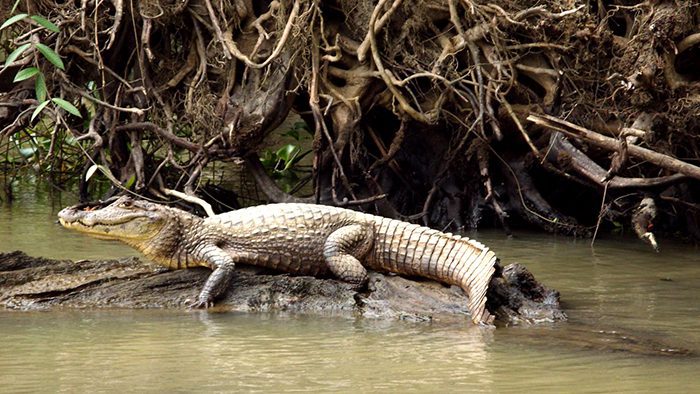
Dining in Tortuguero is mostly in the form of small mom and pop restaurants. There are next to zero fully industrialized chains in town, and this allows smaller restaurants to flourish. Most serve a mix of Costa Rican food for the locals and international cuisine for tourists. The small size and familial feel give each restaurant a touch of home, which permeates into the food.
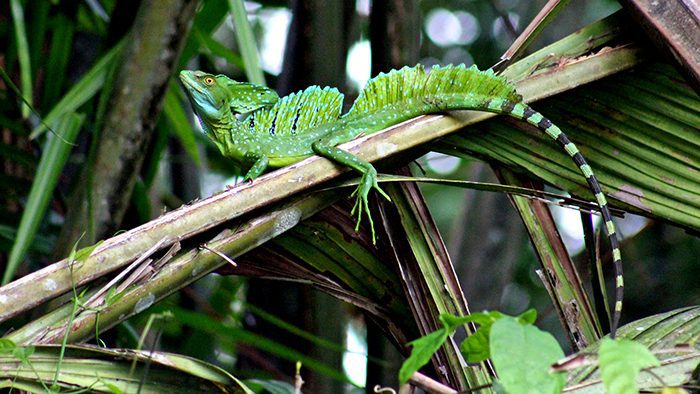
In between meals, visitors will find no shortage of activities to pursue. Most hotels offer some kind of tour of the forests, and the Mawamba Lodge has its own small park for guests to enjoy. The beach is another tourist hotspot, attracting hundreds of people with its pristine water and alluring sand.
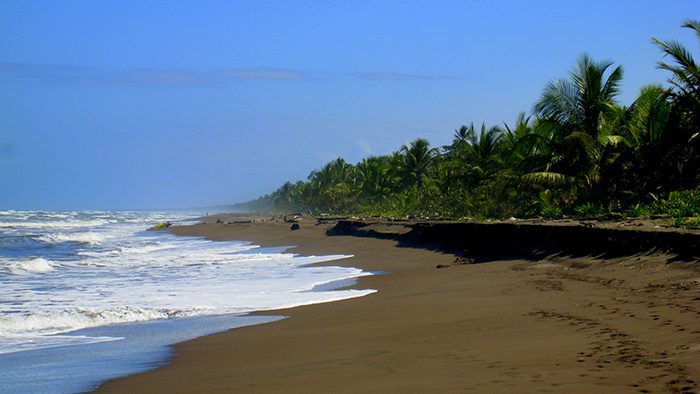
Tortuguero is a truly rural town, and authentically represents what Costa Rica once was before it was swept by industrialization. The intimacy with nature, the mom and pop restaurants, and the dirt roads are all what give Tortuguero its one of a kind appeal. Here are my top 10 Things to See and Do in Tortuguero
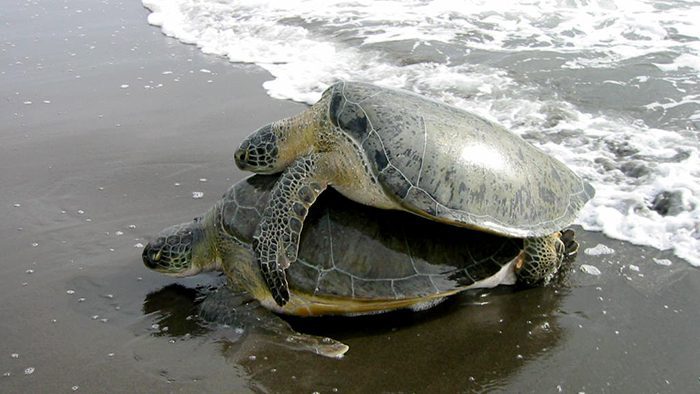
Of all the things to see and do in Tortuguero, this has to be our favorite! Between the months of July and October, female sea turtles steadily begin their journey back onto the beach to lay their clutches of eggs. If the timing is right, lucky visitors will be able to catch a glimpse of this breathtaking spectacle. About 50,000 tourists flock here each year to witness the hatchings. Tours usually start at 8 p.m. and 10 p.m., and cost around 10 USD per person. Do not attempt to go looking for the nests on the beach alone because the beach is strictly monitored by local authorities that will arrest trespassers.
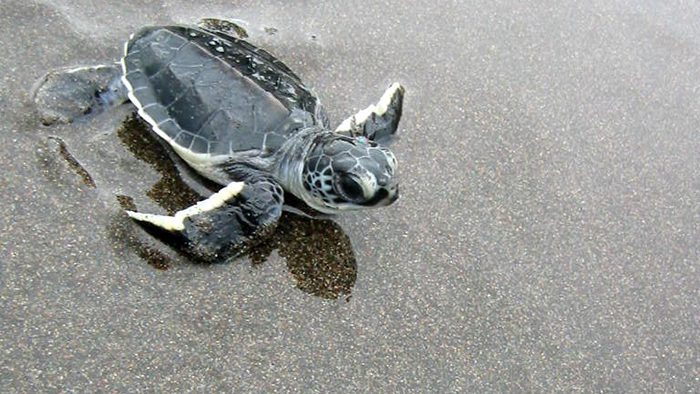
Tortuguero is one of the last undisturbed nesting grounds for Green Sea Turtles, Giant Leatherback Turtles, Hawksbill Turtles, and Loggerhead Turtles. For the ideal night tour experience, wear dark clothing, comfortable shoes, and bring rain gear for cloudy nights. Flash photography is explicitly prohibited, as the flash can confuse and disorient the newborn turtles. Tours are offered later in the year to watch the eggs hatch, an equally breathtaking sight. Both are one of kind experiences, and are completely worth the patience required to witness them.
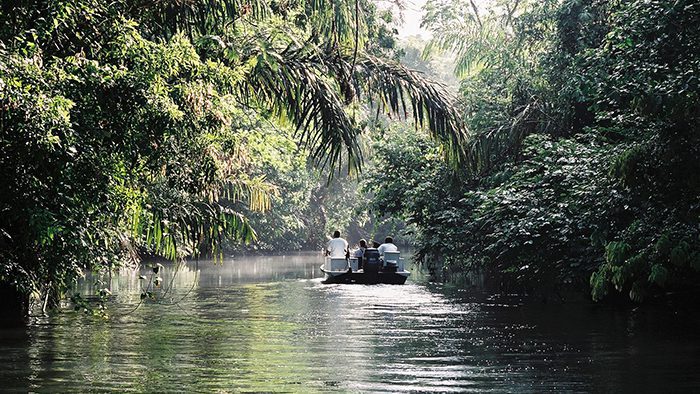
Tortuguero lies in the heart of Costa Rica’s rainforests, and is surrounded by dozens of small canals. For a small fee, adventurous tourists can cruise down one of these canals in a motorboat or canoe. Most of the available guides are extremely knowledgeable, and are able to take you down the most scenic routes in the area, and name every plant and animal along the way. True thrill seekers can rent a canoe or kayak themselves, and explore the jungle alone. If you decide to take a canal tour or kayak on your own, remember to bring sunscreen, insect repellent, water, and cotton clothes to keep you cool.
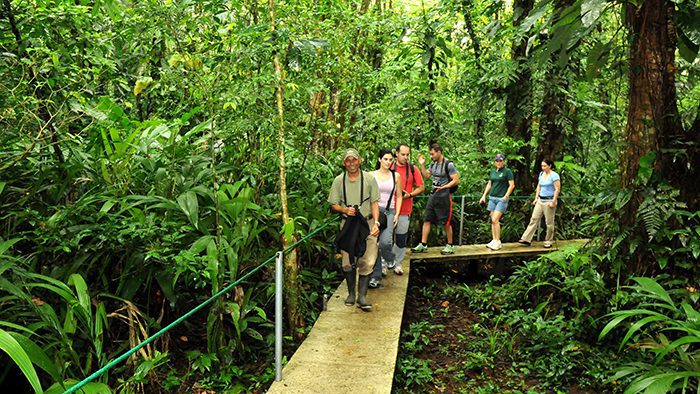
Following the main street of Tortuguero south will lead you to the entrance of Tortuguero National Park. It is one of Costa Rica’s most popular attractions and offers walking and water tours for its visitors. I think that the simplest is to take the walking trails since it will allow you to move at a more comfortable pace. Inside the park biodiversity is the name of the game- with forest and marine life galore. The park is home to jaguars, sloths, peacocks, parrots, frogs, toucans, spider monkeys, alligators, caimans, and much more.
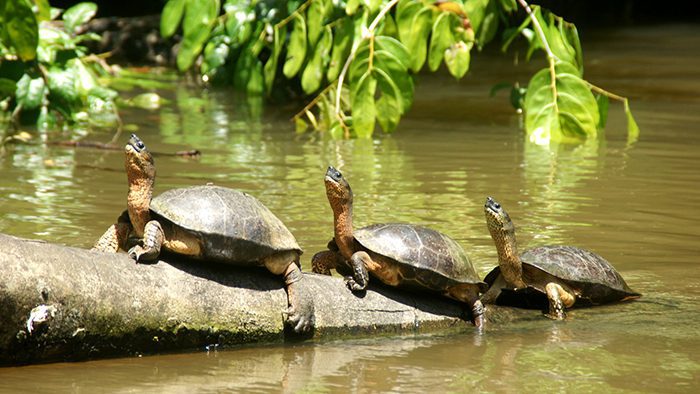
The guards at the entrance of this wildlife refuge are extremely helpful, and so do not hesitate to consult them with any questions or concerns. They can also show you to the best guides, and rent you rubber boots after rainstorms have passed. Inside the park, you can find a completely authentic and absolutely unrivaled intimacy with nature. Every step takes you further into the park, and its menagerie of exotic and stranger animals. The experience is far more enjoyable with a guide. The park is open to the public from 8 a.m. to 4 p.m. daily.
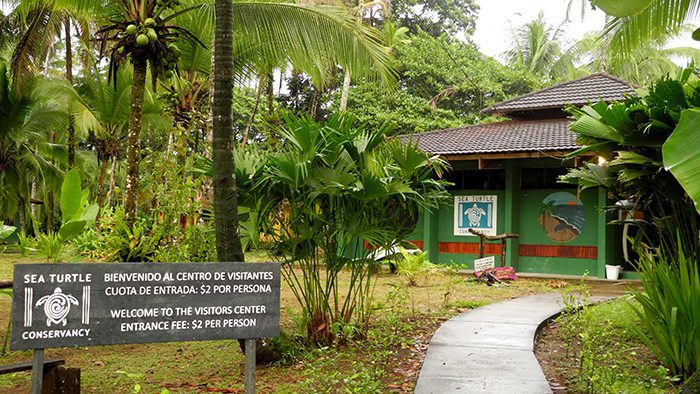
Following any of the dozens of signs along the main street will lead tourists to what locals have affectionately dubbed “The Turtle Museum”. Part of the Caribbean Conservation Center (CCC), this museum is inside the tourist center and asks only for the nominal entrance fee of 1 USD. Though the museum is small, it is packed with interesting information, such as posters illustrating the turtle nesting cycle, as well as facts about other local wildlife species. The officials there are all extremely helpful, and are happy to answer any questions you may have about the local wildlife.
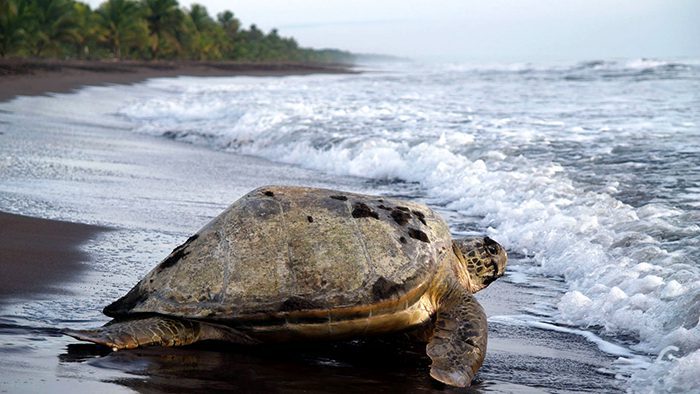
My visit truly opened my eyes for the first time to the dangers that these turtles face on a day-to-day basis, and gave me a new respect for local conservation efforts. Before seeing any wildlife in Tortuguero, stop by this museum to give you an understanding of exactly how threatened the wonders you see are, and how likely it is that a time may come when no one will see them at all.
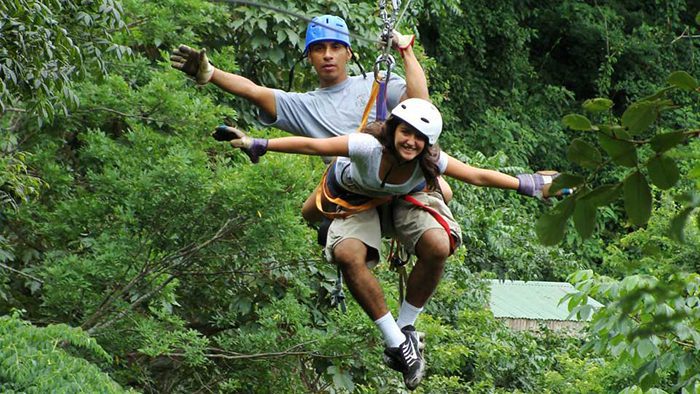
Many animals in the canopy live out there entire lives amongst the trees, never lowering to ground level. To avoid missing these additions to the Costa Rican menagerie, take a ride on the Jungle Canopy Tour. At the cost of a few hours and 35 USD, tourists can discover the jungle canopy through a thrilling mix of zip-lines and bridges. Seeing animals from 100 ft. above your head is an experience all its own, and the entire forest comes to life from this unique vantage point.
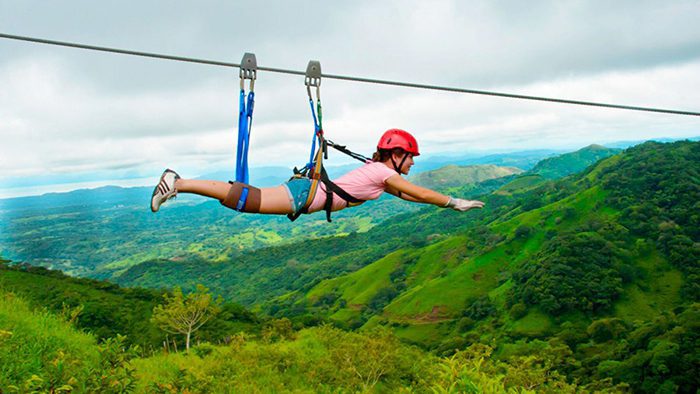
All the equipment is professional strength and safe, and so are the guides. They make every effort to ensure your comfort, and assuage any fears you may have about climbing 75 ft. and zipping around the forest. In the many years this tour has been offered, there has never been a single accident. For anyone who is after the ultimate thrill (and six years or older,) this is the tour to experience.

The Mariposario is a stunning butterfly garden, with two enclosures, one for butterflies that feed on nectar, and the other for those that prefer rotten fruits. This garden is located inside Mawamba Hotel, and is available exclusively to guests. The enclosure I chose was for butterflies that eat nectar, which houses the Monarch and Owl butterflies. Inside, I found more butterflies than I thought possible. They were everywhere. Hopping on leaves, climbing up tree trunks, feasting on nectar, and flying carelessly about the enclosure. A true lepidopterical wonder, the Mariposario is a must see for anyone, butterfly lover or not.

Next to the Mariposario lies Ranario, a frog farm. The two main types of frogs here are the Blue Jeans Frog, and the Red-Eyed Tree Frog. The Red-Eyed Tree Frog cannot be found outside of Costa Rica, but visitors have nothing to fear, as the poison must be ingested to be lethal. The Blue Jeans Frog gets its name from the fact that its torso can be a range of colors, but its legs are always dark blue, giving it the appearance of wearing blue jeans. For any guest of the Mawamba Lodge, the Ranario is a great way to experience some the wildest animals in Costa Rica in a tame environment.
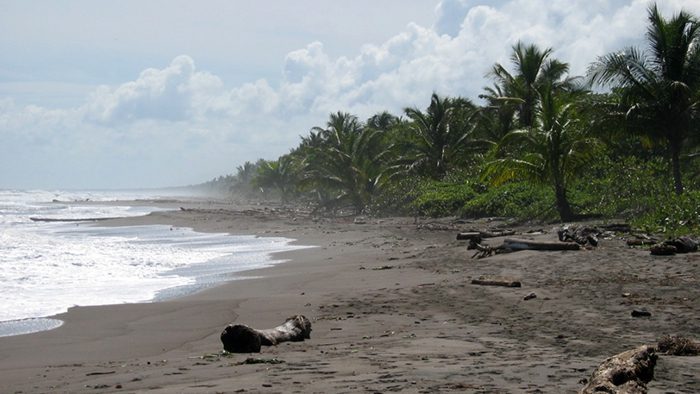
If you like long walks on the beach, this pristine beach lies on the Caribbean coast, east of Tortuguero, and is bare of everything except sand and water. Tourists are advised to enjoy the sand but avoid the water, as it is home to sharks and barracudas. The natives go forth into the water, but they are experienced in these matters. Do not follow their lead. Popular tourist activities sans the water include beach volleyball, sun bathing, and sand castle building. The latter is ideal given the moistness of the sand. As a whole, Tortuguero Beach is 35km of ocean, sand, and tropical bliss.
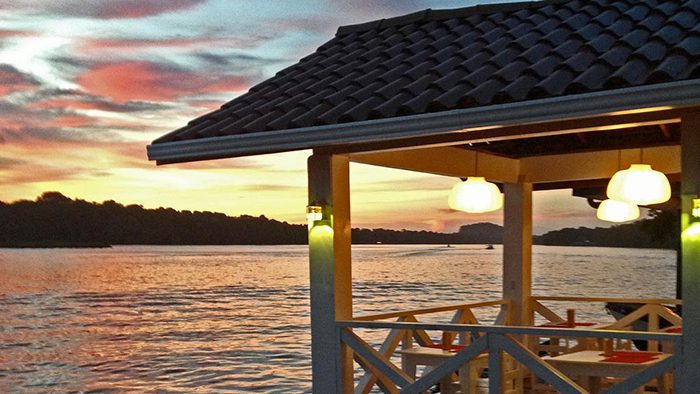
The properties overlooking the rivers of Tortuguero usually sell quickly and are thickly populated. The plot that houses the Buddha Café, however, was vacant until 2006 when an entrepreneur and chef teamed up to open a restaurant there. The Budda Café is slightly pricier than other local restaurants, but the soothing atmosphere, riverside terrace, and pleasing ambience make it well worth the costs of dining there. They serve up authentic Mediterranean food, making an excellent alternative to the slew of local Costa Rican food.

You can enjoy your meal lounging on a couch in the nightclub-like interior, or at a dockside table overlooking the river. This small café, with its decadent food, and cathartic ambiance draws crowds from across town, and visitors are never disappointed. For the best experience avoid the hectic lunch hour and opt for a moonlit dinner instead. The restaurant is open Monday through Sunday 12 p.m. to 9 p.m.
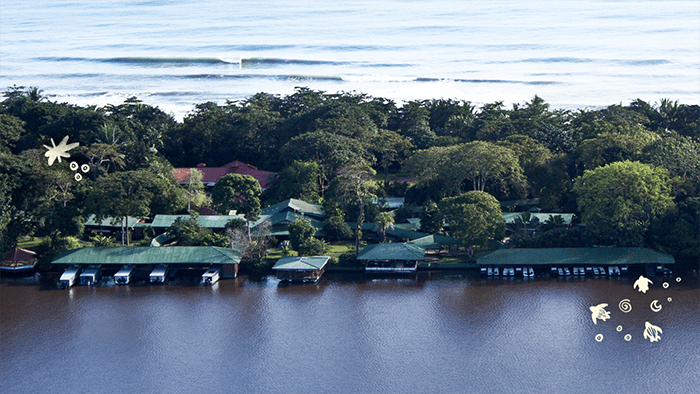
Mawamba Lodge is located in the most ideal place possible: a 15-acre beachfront property located between the Caribbean coast, and Tortuguero. They offer daily transportation to and from San Jose, as well as pickup from any hotel or airport in the area.
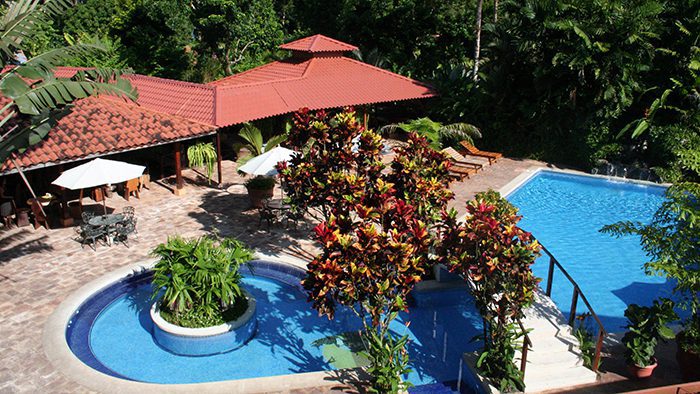
The hotel boasts 58 rooms, of which 54 are standard and 4 are superior. Standard rooms come with one double and one single bed, or three single beds. Superior rooms are housed in separate bungalows and feature one king or two queen size beds. All rooms offer a tranquil garden view, ceiling fans, a private safe, and a bathroom. The superior bedrooms have separate tubs and showers.
Amenities available to guests range from a heated pool with an overlooking restaurant to a frog garden. Adjacent to the frog garden is a spectacular butterfly garden, with butterflies of all shapes and sizes. Also offered are a souvenir shop, a game room with darts and billiard table, and a conference room. Guests with spare time can wander the Mawamba Park, a small enclosure filled with animals from the area, and available exclusively to guests.

Most tours are self-guided, so spotting animals poses no challenge. For those on the 3-day, 2-night package, a guided tour of the park and a morning boat trip are included with your transportation from San Jose. Tours of the national park, the nearby beach, and the surrounding area are also available to all guests for an additional cost. Be sure to swing by the Katonga Floating Restaurant, a small diner that floats down the nearby river and offer sunset tours. For those looking to relax, the hotel offers a swimming pool and a whirlpool, as well as a full service bar.
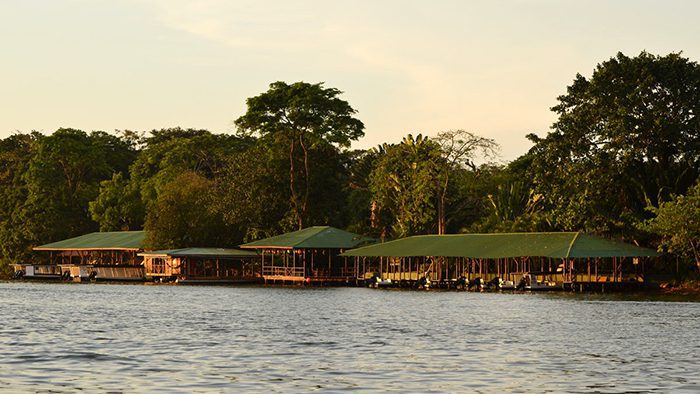
In the end, Mawamba Lodge proves itself to be more than just a hotel, with its friendly staff, wide range of services, and excellent hospitality. It can sometimes be overwhelming to visit small towns like Tortuguero, but the Mawamba Lodge can help make your trip to Tortuguero complete by helping you arrange and reserve activities such as kayaking, nighttime turtle tours, fishing, and more.
Tortuguero is completely isolated from the rest of Costa Rica. After leaving your car at the port, it takes an hour and a half to make it to the hotel. It is here, and in the town that you can learn about the national park that gives Tortuguero its fame and ecotourism. Home to hundreds of species of land and marine life, Tortuguero National Park is one of the few remaining examples of unspoiled Costa Rican rainforest. My favorite memory was seeing the Red Eye tree frog in the wild. It is found only in this national park, and is nocturnal. During the day, they can be found napping at the bases of trees.
Tortuguero can be quite intimidating to a tourist. To smooth your experience, stay at the Mawamba Lodge, where the staff is knowledgeable and friendly, and always available to help you arrange tours and activities.
The beach is beautiful, and the natives love to enjoy the warm water. As a tourist, be wary of joining them. The water is difficult to swim in without experience, and houses a few dangerous creatures (enough to keep me out of it.) Take in the scenery, but Tortuguero is not a place for swimmers.
Anywhere in Tortuguero, look out for turtles, monkeys, and caimans. They can be seen all over the place, but the monkeys can be a bit tricky to spot. Try renting or buying binoculars to ensure you are ready for a quick glimpse at a toucan or butterfly. Tortuguero is truly a natural wonderland and an unspoiled treat for animal lovers. The locals are extremely proud of their native turtle population, and the fact they have chosen to lay their eggs there year after year. It is a wonder indeed.
Share your suggestions for things to see and do in Tortuguero! Leave us a comment below!
Counter
101 Countries • 1432 Cities
Luís Louro says:
Just preparing my stay in Mawamba, and I liked your review, but a correction… Red eyed tree frog is NOT the most poisonous frog in the world, its not even poisonous!!!! Poison- dart-frogs have poison, not the red eyed…
Regards, LL
David says:
Wow I cant believe we wrote it like this.
Luís Louro says:
🙂 the poisinous one here is the blue jeans… not the red eyed tree frog… but cool general review anyway.